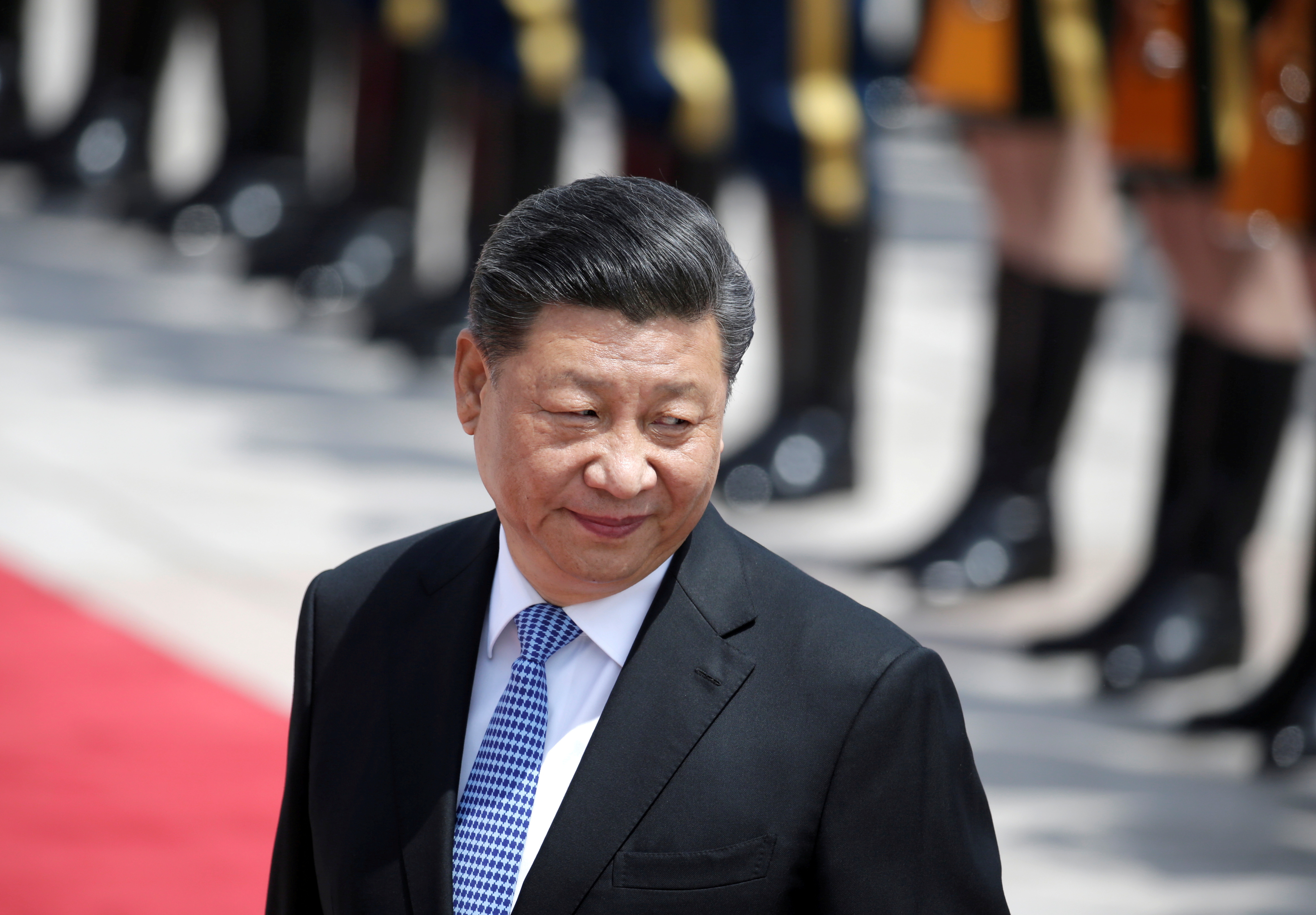Xi’s wealth redistribution push starts with stick

Chinese President Xi Jinping attends a welcoming ceremony for Greek President Prokopis Pavlopoulos outside the Great Hall of the People, in Beijing, China May 14, 2019.
HONG KONG, Aug 18 (Reuters Breakingviews) - Chinese President Xi Jinping is fleshing out his plans for wealth redistribution. He wants to restrain “unreasonable income”, hike wages and expand the middle class, per a readout of a top-level conference on Tuesday, which helps explain his recent rough treatment of corporate tycoons. Funding fiscal transfers and social services could entail fresh burdens for China Inc, and the long-delayed property tax may be implemented at last.
The wealthiest 1% of Chinese people now hold 31% of the country’s wealth, up from 21% two decades ago, per a Credit Suisse report. The pandemic, which hit small businesses and poor workers hardest, has exacerbated the gap, yet the number of newly-minted ultra-rich surged 50% compared to 2019 as financial markets popped.
It is easy for Xi to make rich people less rich; investors wiped up to $1 trillion off the value of listed Chinese companies since February as officials and state media went after e-commerce giants, video-game companies, after-school tutors and property developers.
But increasing disposable incomes for ordinary people, which only grew 1% for urban residents in 2020, will be trickier in a system better at driving growth through investment than consumption. It will require fresh fiscal transfers and increased social spending, and companies and wealthy people will probably be on the hook to help pay. For example, while executives ranging from Tencent's (0700.HK) Pony Ma to Meituan's (3690.HK) Wang Xing have already stepped up their charity efforts, that probably won’t stop Beijing from bringing tax rates for internet companies, long held at a preferential rate of 10%, back up to the 25% corporate standard.
The biggest change might be the implementation of a controversial, long-delayed property tax. Real estate contributes 70% to China's wealth gap, noted Li Shi, an expert on income distribution at Beijing Normal University. Yet Xi’s campaign to cool prices has struggled to find traction. A tax could have three benefits: cooling speculation that makes ownership financially onerous for ordinary people; putting empty flats into rental market; and extracting contributions from those whose wealth is concentrated in apartments. On the other hand it could hammer an industry that directly and indirectly contributes as much as a quarter of GDP. But at this point investors are ill-advised to bet against Xi’s resolve.
Follow @ywchen1 on Twitter
CONTEXT NEWS
- President Xi Jinping chaired a meeting of the Communist Party’s Central Committee for Financial and Economic Affairs on Aug. 17 where he stressed the importance of “common prosperity”. The government aims to expand the size of middle-income groups, increase the earnings of low-income groups, “reasonably” regulate that of high-income groups, and ban illegal income.
- The government will make adjustments on taxation, social security, and fiscal transfer payments, and create more inclusive and fair conditions for people to have better education and upward mobility, a summary of the meeting showed.




Nessun commento:
Posta un commento